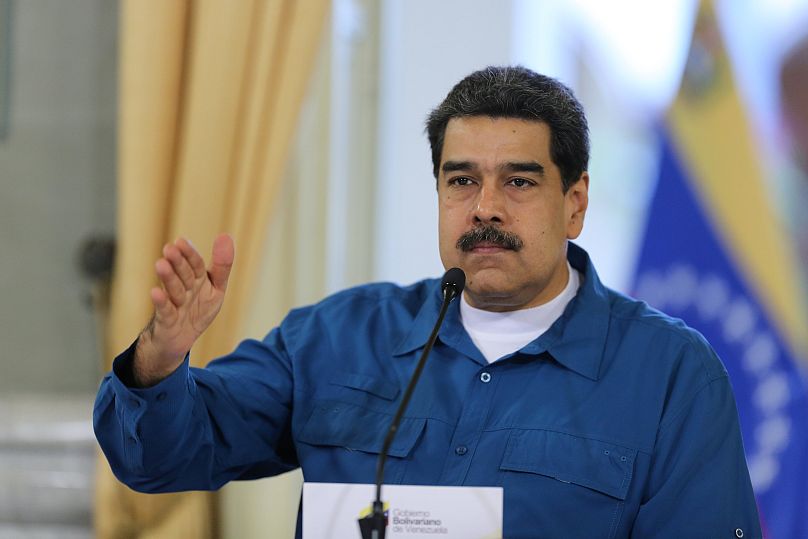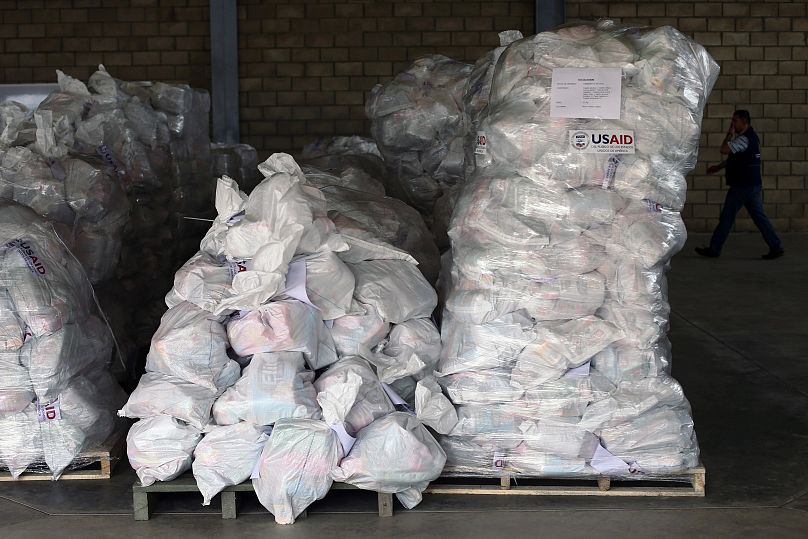Venezuelans are eating two or fewer meals a day as President Nicolas Maduro continues to block humanitarian aid from coming into the country
For 62-year-old Dilia, like many ordinary Venezuelans, hunger is a daily reality.
The cleaner invited Euronews into her Caracas home but was upset that she could not offer us a proper meal.
She earns 3,000 bolivars, or $1 a day*, and says her salary is “just not enough” to be able to buy enough food.
“There used to be more things but nowadays, no, because everything is so expensive", she said.
Dilia and her family are among the 60% of Venezuelans who reported involuntary weight loss, according to a 2016 study by the Central University of Venezuela, the Andrés Bello Catholic University and the Simón Bolívar University.
The study also found that a quarter of the population was eating two or fewer meals a day.
The crisis has led to a fall in support for the government even in previously strongholds such as poorer areas where the collapse of the economy has been felt especially.
During the previous decade, under the charismatic former soldier Hugo Chavez who died in 2013, Venezuela experienced a boom following the dramatic rise in the price of oil and was able to afford generous public subsidies.
But following the crash of the price of oil, Venezuela’s main export and only source of hard currency, hyperinflation has run rampant — wiping out many people’s salaries and life savings.
The unrest has led to more than a month of protests by opposition leaders who say current President Nicolas Maduro has eroded democracy to stay in power.
Maduro, Chavez’s vice president who took over after the latter’s death from colon cancer, was sworn in for a second term as president on January 10 following a disputed election last year.
Last month several countries and international organisations, including the US state department and the EU parliament, recognised opposition and National Assembly leader Juan Guaido as the interim president.
The US and other countries have sent an aid convoy to the country to relieve pressure on Venezuelans but the trucks have remained trapped in Colombia as Maduro will not allow them into the country.
Maduro calls the aid convoy, which arrived in the Colombian border city of Cucuta on February 7, an attempt to “humiliate” Venezuela and claimed the decision to recognise Guiado was part of a US plot to stage a coup in the country and steal its oil reserves.
The Venezuelan government is trying to feed its own people with trucks carrying subsided food that people in poor neighbourhoods can afford.
But during one truck visit witnessed by Euronews the situation became tense when it emerged there was not enough food to go around.
One resident said: “There wasn’t enough food. They can’t be playing with our hunger, if they say are giving to the people they should give to the people. They cannot take the food back how do they think that makes the people feel”.
Despite the crisis, some Venezuelans remain hopeful and want to give Maduro the benefit of the doubt.
Dilia says she believes he does not know how bad the situation has become.
“I imagine President Maduro imagines that the food packages are coming every 15 days. I believe he thinks everything is OK, [that] everything is fine but it is a lot.”
*Exchange rates fluctuate enormously in times of hyperinflation and with the prevalence of black markets.













